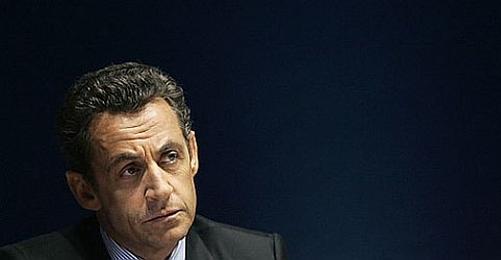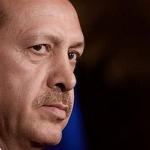French President Nicolas Sarkozy pushes for a genocide denial law to be valid in the whole European Union (EU). His efforts come after the French Parliament passed a law on 22 December 2011 that foresees legal punishment for the denial of the Armenian genocide.
The draft law was brought to the agenda of the French Senate and is being debated today (9 January) at the Presidency Council of the Senate. The draft will probably be presented to the Senate between 23 and 31 January. As reported by the Hürriyet newspaper, Sarkozy signed a decision that might also affect Turkey's EU accession process.
The EU Joint Framework Decision was a matter of debate since 2001and approved on 19 April 2007 under German EU Presidency. It intends to fight racism, xenophobia and genocide.
In other words, the recent decision taken in France does not only concern the country but might become valid for all 26 EU member states. The decision entitles the courts of the EU states to decide whether the act of genocide happened or not. Should the courts approve the provision, anybody who denies the genocide can be sentenced to imprisonment of up to three years.
French bureaucrats and diplomats in Brussels took efforts at the EU Commission and the EU Council that the Framework Decision should also cover the denial of the Armenian Genocide once the draft bill will have been approved by the French Senate. This means that the denial of genocide within the EU would be punished with prison terms of between one and three years.
The Framework Decision also stipulates regulations that include the state's struggle against racism and the punishment of the denial of the holocaust.
What happened after the law was approved?
* The parliamentary approval of the law on the denial of the Armenian genocide caused diplomatic tensions between France and Turkey.
* Representatives of the Association of Turkish Industrialists and Business People (TÜİSAD) and the Turkish Union of Chambers and Commodity Exchanges (TOBB) went to Paris to prevent the draft bill from passing into law. They warned that the draft might have a negative influence on the anticipated purchase of a considerable number of Airbus planes by Turkish Airlines and on energy tenders worth $ 100 billion for the coming ten years.
* Prime Minister Recep Tayyip Erdoğan expressed his dissent, "It was genocide what the French did in Algeria. If Sarkozy does not know that, he should go and ask his father Pal Sarkozy about it".
* Thereupon, Algerian President Ahmet Uyahya responded, "The Turks brought the French to Algeria for three days. Don't take advantage of our bloodshed".
* On 23 December, right after the draft bill had been approved by the French Parliament, Turkish Ambassador to France Tahsin Burcuoğlu was being called to Ankara. However, Burcuoğlu returned to France to resume work on 8 January. The declared reason for his return was "Taking efforts to prevent the draft bill from passing through Senate".
* It was announced that French companies or companies with French partners might not be entitled to participate in the air defence system tender of the Undersecretariat of Defence Industries (SSM) worth $ 4 billion.
France had previously recognized the genocide of Armenians and Switzerland and Slovakia had approved of legal punishment for the denial of genocide.
On 16 December 2003, Switzerland recognized the Armenian genocide in a parliament decision. The related decision is still pending in the senate. Later on, a provision foreseeing monetary fines and prison terms for the denial of genocide was added to the regulations. Switzerland was the first country to implement such a provision. Turkey released a protest note and condemned the decision. The regulation was put in order within the process despite the fact that diplomatic relations between Turkey and Switzerland were shaken. (IC/VK)
These are the countries which recognized the Armenian genocide:
Uruguay (1965), Greek Cypriot Administration (1982), Argentina (1993), Russia (1995), Canada (1996), Greece (1996), Lebanon (1997), Belgium (1998), France(2001), Sweden (2000), Italy (2000), Switzerland (2003), Slovakia (2004), the Netherlands (2004), Poland (2005), Germany (2005), Venezuela (2005), Litvanya (2005), Chile (2007).








